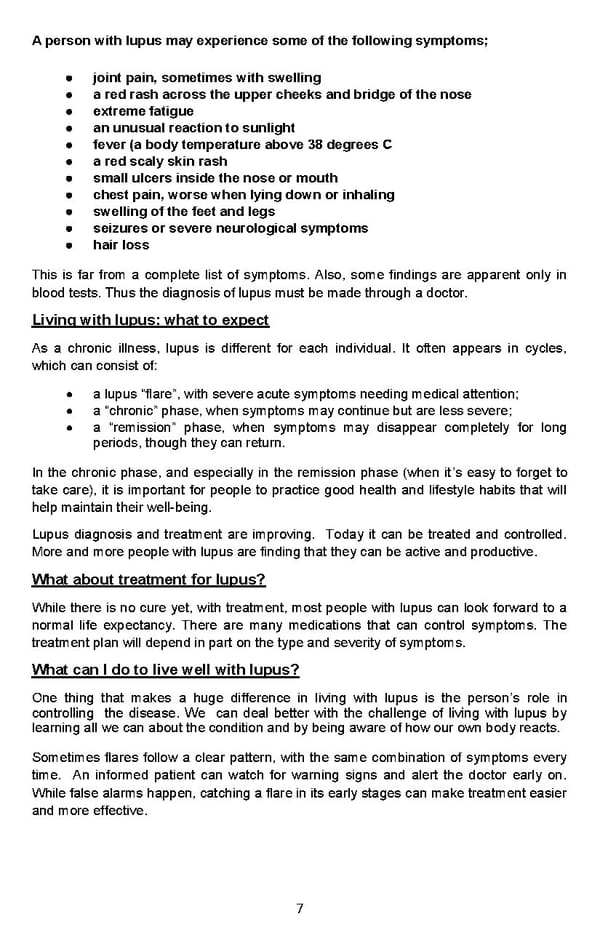A person with lupus may experience some of the following symptoms; • joint pain, sometimes with swelling • a red rash across the upper cheeks and bridge of the nose • extreme fatigue • an unusual reaction to sunlight • fever (a body temperature above 38 degrees C • a red scaly skin rash • small ulcers inside the nose or mouth • chest pain, worse when lying down or inhaling • swelling of the feet and legs • seizures or severe neurological symptoms • hair loss This is far from a complete list of symptoms. Also, some findings are apparent only in blood tests. Thus the diagnosis of lupus must be made through a doctor. Living with lupus: what to expect As a chronic illness, lupus is different for each individual. It often appears in cycles, which can consist of: • a lupus “flare”, with severe acute symptoms needing medical attention; • a “chronic” phase, when symptoms may continue but are less severe; • a “remission” phase, when symptoms may disappear completely for long periods, though they can return. In the chronic phase, and especially in the remission phase (when it’s easy to forget to take care), it is important for people to practice good health and lifestyle habits that will help maintain their well-being. Lupus diagnosis and treatment are improving. Today it can be treated and controlled. More and more people with lupus are finding that they can be active and productive. What about treatment for lupus? While there is no cure yet, with treatment, most people with lupus can look forward to a normal life expectancy. There are many medications that can control symptoms. The treatment plan will depend in part on the type and severity of symptoms. What can I do to live well with lupus? One thing that makes a huge difference in living with lupus is the person’s role in controlling the disease. We can deal better with the challenge of living with lupus by learning all we can about the condition and by being aware of how our own body reacts. Sometimes flares follow a clear pattern, with the same combination of symptoms every time. An informed patient can watch for warning signs and alert the doctor early on. While false alarms happen, catching a flare in its early stages can make treatment easier and more effective. 7
 Living Well With Lupus Facts Booklet Page 6 Page 8
Living Well With Lupus Facts Booklet Page 6 Page 8